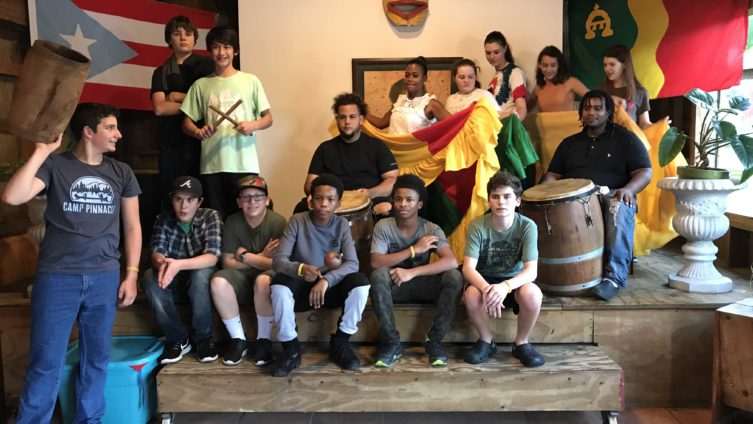
Many schools use project-based learning to engage students through topics that interest them. Research shows that just a couple of the benefits of project-based learning are that it helps students become better decision-makers and that it helps teach students 21st-century skills.
Middle Grades Teacher Todd Wass explains TCS’s immersive approach to project-based learning and how it helps teach our students skills that will help them succeed in high school and beyond.
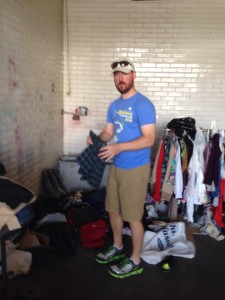
Todd helps out at ShopRefuge, an event organized by Refuge Coffee Co, this past summer.
TCS sixth graders are currently in the midst of their third Immersive Project-based Learning (I-PBL) unit of the year. The Atlanta Human Rights Design Challenge incorporates design thinking and I-PBL to challenge students to create an art installation to celebrate or honor an individual, group or organization that has worked to promote human and civil rights in the city of Atlanta.
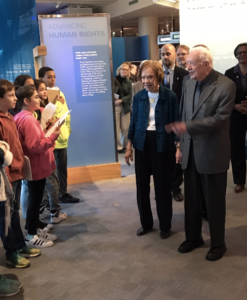
About the Unit
During the unit, students have traveled to the Center for Civil and Human Rights, MODA and the Carter Center where they got the privilege of meeting President Carter and Rosalynn Carter. Additionally, experts from six local organizations that promote human and civil rights came to speak to our students about their work. Early on during the design challenge, students learned about art installations, the danger of a single story, the BeltLine, and Art on the BeltLine. Combining their knowledge gained during the design challenge, student groups decided on who they wanted to honor, created a point-of-view statement and brainstormed ideas for their art installation. Kelley Taylor, TCS’s art teacher, visited with each group to provide feedback on the student group’s ideas. The ultimate goal for this I-PBL unit is to have student’s art installation installed on the BeltLine to honor those who have promoted human and civil rights in the city of Atlanta.
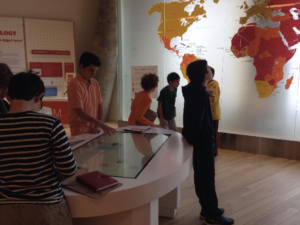
Next Steps
In the coming weeks, student groups will bring their idea for their art installation to life by drawing several quick prototypes then get feedback in order to have a unifying vision for moving forward. Students will use the web-based program Tinkercad to take their idea from 2D to a 3D-printed prototype. As groups work to 3D print their idea, they will begin to construct a presentation where they will pitch their art installation idea to a panel of experts. Lastly, groups will complete the BeltLine Art Proposal with the hopes of installing their work on the BeltLine.
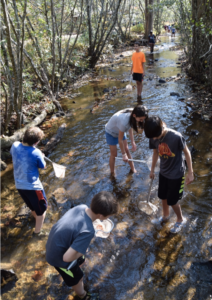
I-PBL at TCS
What makes I-PBL at TCS different from other schools is the interdisciplinary planning and execution of the units, getting “out there” and taking action. For each I-PBL unit, on an average of eight times per I-PBL unit, students head off campus on field trips to visit organizations, museums and businesses and talk with experts, or experts come to TCS and talk with our students. Many independent schools in metro-Atlanta take one, maybe two, field trips as a grade the entire year; at TCS getting “out there” is just what we do. It is common for our students to walk in the morning, greet us and ask, “Where are we doing today?”, not out of surprise, but out of knowing that is just what we do. Getting out there and taking action are two unique aspects that make our methodology different than other schools. Jeffrey, a sixth-grade student, said to a group of visiting educators and administration from the National Association of Independent Schools (NAIS) People of Color Conference (PoCC), “Think about it. Would you rather learn about something sitting down from a book or lecture, or would you rather learn about it by going there and seeing it first hand?”
Each of our I-PBL units connects to the overarching theme for the year, “My Place in the World,” and each unit requires students to take action. Taking action might start in the form of a game, simulation or picture book that demonstrates the refugee experience; and continue with students planning the entire service learning day to raise awareness for the refugee experience in the TCS community. Simply put, I-PBL gets our students off campus to experience the world and asks them to take action by solving a problem or informing the public.
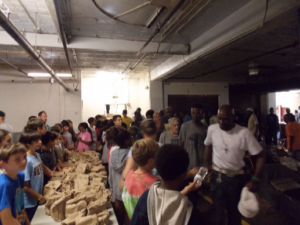
What do Students Think About I-PBL?
From the student perspective, students are going beyond studying for a test – memorizing a set of facts to reproduce on a test and quickly forget. Instead, they are connecting the knowledge of material science and 3D printing in science, novels that deal topics of human and civil rights in language arts, to create an art installation that honors or celebrates a group that has worked to promote human and civil rights in metro Atlanta in social studies. Failure and feedback are common words in the sixth grade where students constantly seek out their teachers for feedback on how to improve their work and they recognize that learning comes from failing and figuring out how to improve in their next iteration.
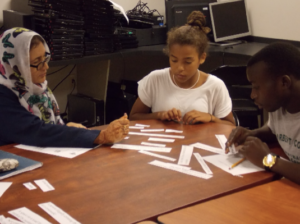
Real-Life Experiences for Students
Beyond the next iteration in their learning journey, we have found that our students have become keen observers of their experiences in I-PBL. When returning from being off campus, it is custom to debrief our experiences. During our debrief sessions, our students say some of the most profound things. Spencer said after returning from International Rescue Committee (IRC) of the refugee experience, “Imagine a refugee who was a doctor in the country from which they emigrated from to learn that their degree and qualifications are not enough to be a doctor here in the states. While he wants to go to medical school in the U.S. to become a doctor again, he realizes that he must provide for his family and providing for his family means finding a job. But the job he can get as a refugee is not the same as he could get in his home country; he is underemployed.” Another example of our student’s keen observation skills happened after returning from New American Pathways. Payton exclaimed, “Learning Russian is really hard. I cannot imagine how difficult it is for refugees to learn English so that can be successful here in Atlanta.” These observations came from real-life experiences where student were off campus not from a textbook in a classroom.
Todd Wass
@toddw42 on Twitter









